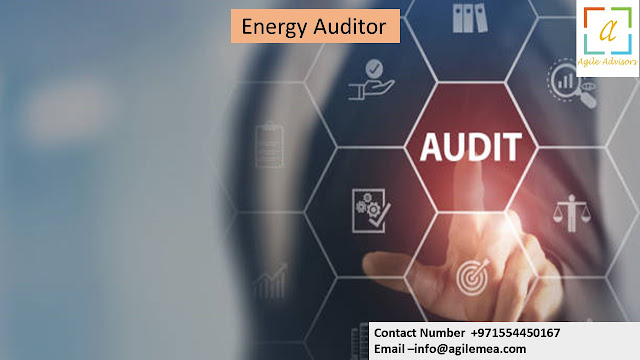Make an audit of your energy use.
We are an Energy Auditor; an energy
audit can shed light on your business's energy usage and point out possible
opportunities for savings. It may result in lower energy use, increased output,
and chances for innovation. It is possible to perform energy audits in-house.
If necessary, expertise isn't found within, outside specialists or energy
service providers can be hired to do some or all of the work. Knowing where and
when the organization utilizes the most cost-effective energy-saving strategies
is essential to identifying them. Some of this information can be found in
energy bills, but comprehensive statistics and evaluations can give you a
better idea of how much energy you consume. At least a year's worth of data
illustrating patterns in energy use must be gathered to provide a comprehensive
picture of gas and electricity use. Billing data ought to reveal holes or point
out some of your business's operations that utilize more energy.
To help you as Energy Consultant, you can install meters to record particular operation times or hire meters to track energy use in the short term. Remember to account for daily, monthly, or seasonal variations when analyzing the data. Real-time energy use and cost data for your business are displayed via electricity monitors. Certain energy retailers provide free energy monitoring. Additionally, there are apps for Apple and Android smartphones that track energy usage. Additionally, plug-in monitors are offered. See Victorian Energy Saver for more information on obtaining and interpreting energy data. You'll be able to share insightful data with the entire company. Achievements are a great approach to increase support for ongoing energy conservation. A summary of the energy used by your business and an approximate estimate of the energy savings with quick payback times.
In our opinion as Energy Audit, by connecting
energy expenses to business output, your energy baseline will clarify the
relationship between your company's energy use and operations’-Y plotting
energy consumption versus production or other factors; seasonal, monthly,
weekly, daily, or hourly usage; graphing energy use over time to identify
trends in energy use benchmarking energy performance to compare sites or
determine whether a process, building, or business unit is performing at its
peak. Close the loop by monitoring your development and any future advancements
in your business's energy consumption. You’ll be able to share insightful data
with the entire company. Achievements are a great approach to increase support
for ongoing energy conservation. See the Energy Efficiency training page for a
variety of energy efficiency training providers and options, including
government workshops, authorized training, on-the-job training, and programs
provided by professional and industry associations.
We believe as an Energy Consultant, Businesses
that use a lot of energy and have an annual net energy consumption of more than
0.05 PJ should consult the section on significant energy users for instructions
on conducting an energy efficiency assessment. Smaller firms can benefit from
these audits. Larger companies may also profit if energy efficiency has never
been evaluated. A more thorough examination of your business's energy usage. It
will quantify possible energy savings based on comprehensive data and analysis
of the particular equipment and operating conditions applicable to each
location. Comprises a financial assessment of prospects according to
predetermined standards that will assist business owners in ranking the
opportunities presented in the audit in order of priority. It is usually
optional to install additional measurement equipment.
To help you as Energy Auditor, Concentrates
on a significant subsystem, like compressed air systems or boilers. More
precisely, quantifying opportunities entails extra measurements. Helpful for
larger companies that have sophisticated machinery or sizable production
facilities. States and territories have different requirements for energy
auditor certification and training. A directory of service providers is
available on the Energy Efficiency Council website. The abilities, know-how,
and expertise auditors require to do their duties effectively are outlined in
Australian standards. Depending on the type of audit needed and the equipment
the company uses, these requirements may change depending on the industry. .
The energy supplier directly provides this information, or a third party with
authorization to access the data can do so.




Comments
Post a Comment